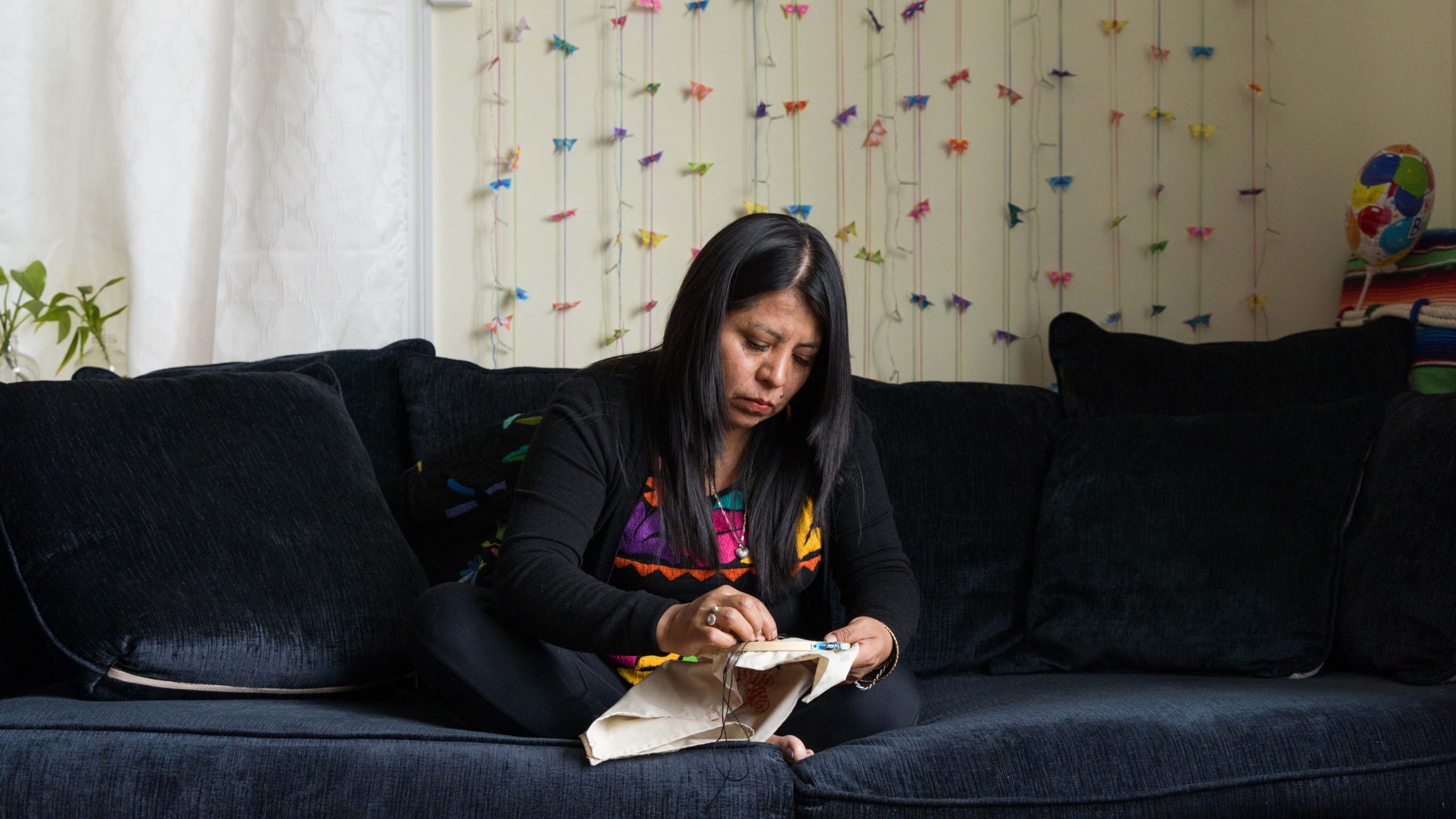Supporting Immigrant Mothers Through Sewing and Stories of Migration
Core Concepts
The author highlights the importance of creating a safe space for immigrant mothers to share their stories of migration while engaging in cultural crafts as a form of therapy and empowerment.
Abstract
A group of migrant mothers in Queens comes together to sew traditional Mexican cloth napkins while discussing family, migration, and mental health. Founded out of necessity during the pandemic, the group provides a safe space for these women to support each other through shared experiences and cultural crafting. Members find solace in sharing their struggles and offering solutions, creating a therapeutic environment that empowers immigrant mothers to navigate life in a new country.
Customize Summary
Rewrite with AI
Generate Citations
Translate Source
To Another Language
Generate MindMap
from source content
Visit Source
documentedny.com
Mothers' Sewing Circle Connects Migration with Traditional Crafts - Documented
Stats
The group has grown to more than 24 members in the past year.
María Vega arrived from Ecuador in February and joined the group.
The founder, Flavianna Linares, lost her job as a house cleaner during the lockdown.
María Verónica Romero Hernández has been residing in the United States since 2007.
Quotes
"I left my mom’s house, very spacious and then over here I was living in a shared small apartment." - María Verónica Romero Hernández
"Some would say I am struggling with this or feeling this way, and then someone else would jump in and offer solutions." - Gaby Paiero
"The public spaces are ours too, we need to use them and not feel ashamed of speaking or showing our culture." - María Verónica Romero Hernández
Key Insights Distilled From
by Rommel H. Oj... at documentedny.com 06-16-2023
https://documentedny.com/2023/06/16/mothers-family-migration-sewing-queens-library/
Deeper Inquiries
How can similar support groups be established for immigrant mothers in other communities?
To establish similar support groups for immigrant mothers in other communities, it is essential to first identify the needs and challenges faced by these women. This could involve conducting outreach programs, collaborating with local organizations, or leveraging existing community networks. Creating a safe space where these mothers can come together to share their experiences, discuss common issues such as family dynamics and mental health, and engage in cultural activities like crafting can be beneficial.
Recruiting passionate individuals who understand the immigrant experience and are willing to facilitate these groups is crucial. These facilitators should possess empathy, cultural sensitivity, and the ability to foster a supportive environment where participants feel comfortable opening up about their struggles.
Additionally, providing resources such as language interpretation services, childcare assistance during meetings, transportation options for those with limited mobility, and access to mental health professionals or social workers can enhance the effectiveness of these support groups.
What challenges might arise when trying to scale up such initiatives for larger groups?
Scaling up initiatives like Comadres Bordadoras for larger groups may present several challenges. One major obstacle could be securing adequate funding to sustain the program's growth. As more members join the group, there will be increased costs associated with materials for crafting activities, venue rentals (if applicable), facilitator stipends (if not volunteer-based), and administrative expenses.
Maintaining the intimate atmosphere of smaller gatherings while accommodating a larger number of participants can also be challenging. Ensuring that each member feels heard and valued within a bigger group setting requires careful planning and effective communication strategies.
Logistical issues such as finding suitable meeting spaces that can accommodate a larger crowd comfortably without losing the sense of closeness found in smaller settings may arise. Coordinating schedules among diverse members with varying availability could also pose difficulties when organizing meetings or events on a larger scale.
How can storytelling through crafts help bridge cultural divides within immigrant communities?
Storytelling through crafts provides a powerful medium for bridging cultural divides within immigrant communities by creating opportunities for shared experiences and mutual understanding. Crafting traditions often carry deep cultural significance passed down through generations, serving as tangible links to one's heritage.
By engaging in craft activities together—such as sewing servilletas at Comadres Bordadoras—immigrant mothers have an avenue to express their unique stories of migration while simultaneously connecting over familiar practices from their home countries. This shared creative process fosters camaraderie among participants regardless of their diverse backgrounds or languages spoken.
Crafting allows individuals to communicate non-verbally through artistry and symbolism embedded in traditional techniques like embroidery or weaving. Through this visual language of creativity, immigrants can convey emotions, memories, values, and aspirations that transcend linguistic barriers commonly encountered in multicultural settings.
Moreover,
crafting promotes cross-cultural exchange by showcasing different artistic styles,
materials used,
and design motifs specific
to various regions around
the world.
This exchange encourages appreciation
for diversity,
celebration
of heritage,
and respect
for each other's customs.
Ultimately,
storytelling through crafts serves as a unifying force that celebrates both individual narratives
and collective identities within immigrant communities,
nurturing empathy
and solidarity across cultural boundaries.
0
